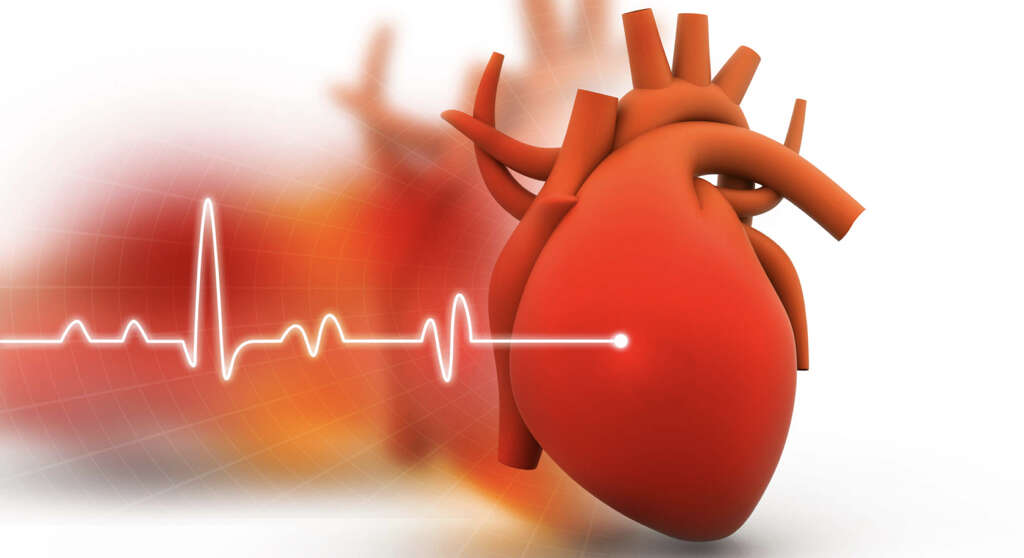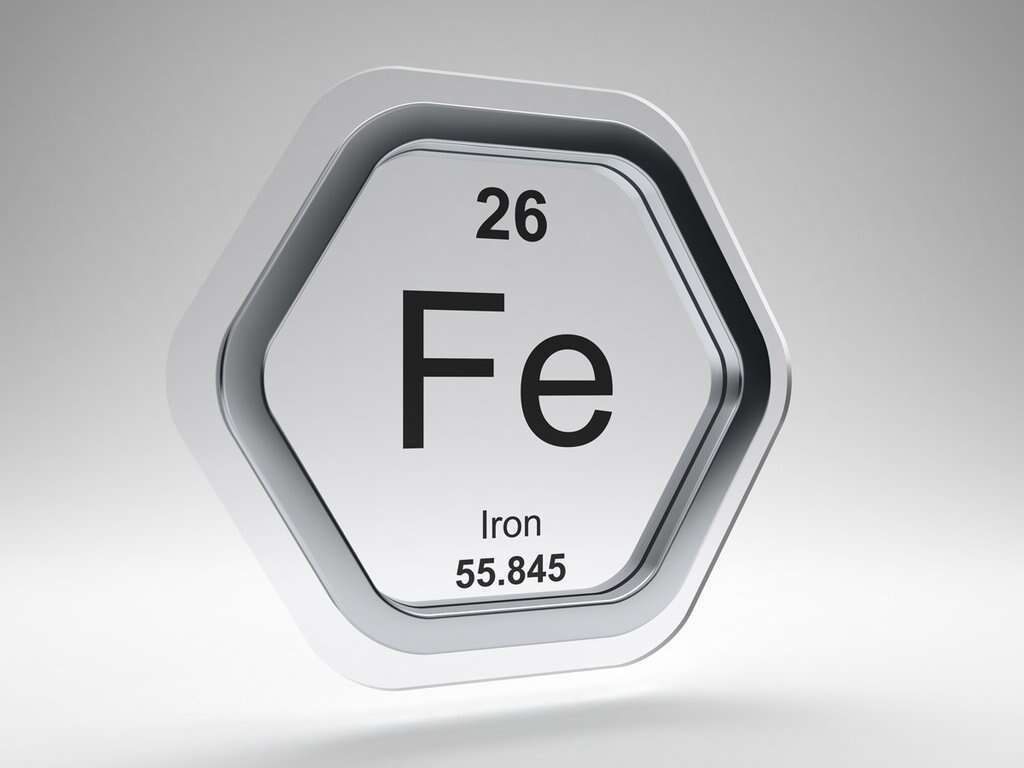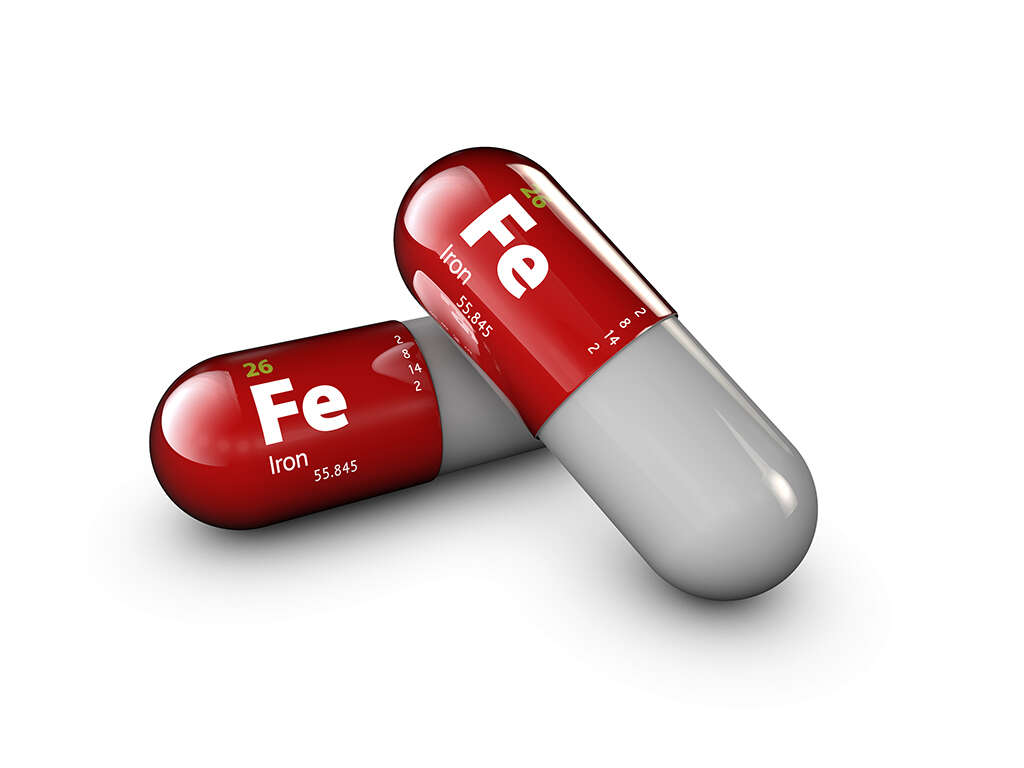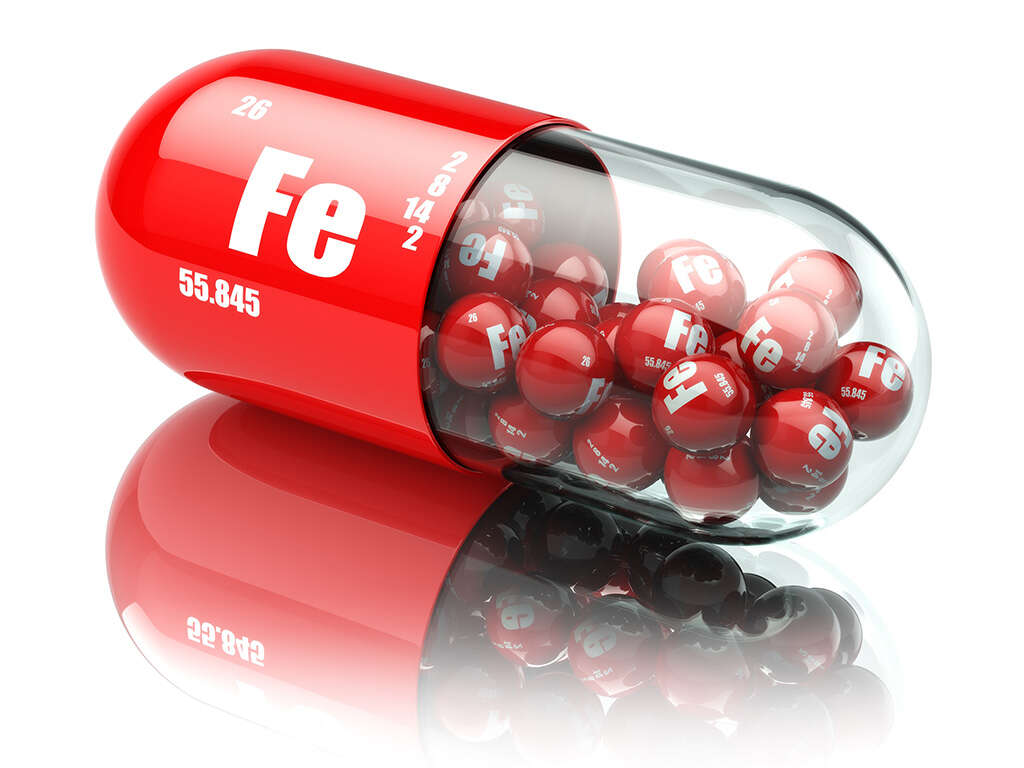10 Symptoms of Too Much Iron
Iron is a mineral that we have evolved to become reliant on. Oxygen has an affinity to the metal, meaning it will attach itself, and this enables oxygen molecules to be transported around the body. As essential as iron is, however, you can have too much of it in the body.
Some people have genetic conditions that cause them to absorb too much iron. Too much iron in the body can also be caused by eating a diet that has too much iron in it.
Regardless, if the amount of iron builds up to levels that are too high, then it can become toxic. Here are a few symptoms of too much iron in your body.

Symptom #1: Abdominal Pain
It is not uncommon for our diet to cause pains in our abdomen. There are certain foods that some people need to avoid to prevent abdomen pains. This, in itself, is not likely to make you think you have too much iron in your body so it will often be overlooked as a stand-alone symptom.
While it may be easy to overlook abdominal pain to begin with, you should arrange to see a medical professional if the symptom continues for too long. Likewise, you should also get help if the pain is particularly severe. It may turn out to be nothing but it is still a good idea to get it checked out.

Symptom #2: Physical Weakness
Our physical strength is provided by our strong skeleton and muscles that help to move the various parts of our bodies. Together, they can help us to perform some impressive feats, especially in people that exercise a lot. If you were to have too much iron in your blood, though, then you could start feeling a lot weaker than usual.
Physical weakness is a fairly common symptom of having too much iron on the body. Patients will have difficulty performing tasks that are otherwise easy for them. The good news is that the patient should be able to restore their full strength after the underlying problem has been solved.

Symptom #3: Joint Pain
Aches and pains in our joints are not unusual, especially for people who are getting older. They will usually pass within a day or two with no permanent damage being done. Such aches and pains are not always so benign, though, and they can sometimes be a sign of having too much iron in the body.
Having too much iron in the body can lead to inflammatory arthritis. This is a condition that causes the joints to become inflamed and this can be quite painful for the patient. The patient can also find that their mobility is restricted as a result of the condition.

Symptom #4: Fatigue
Our bodily system usually runs smoothly thanks to our organs that are hard at work every day. It is important to keep these organs in good condition to help ensure the rest of the body can operate smoothly. If these organs are affected somehow, the body may no longer function as well as it usually would.
When there is too much iron in the blood, the iron can start to accumulate in our organs. This affects their ability to function, and this can lead to us feeling fatigued. The patient might feel tired all of the time no matter how much rest they might be getting.

Symptom #5: Decreased Libido
Desiring sex is one of the most natural urges that people can experience. It is also a very important urge because it helps to ensure that we breed and continue the species. Sex is also one of the most enjoyable things people can experience, but not everybody will crave it so much.
Some patients that have too much iron in their body are likely to find that they begin to lose their urges to have sex. This can happen even in young people who are in the prime of their lives where sexual activity is concerned. The patient’s libido should hopefully return once the underlying cause is dealt with.

Symptom #6: Impotence
Wanting to have sex is one thing, being able to is another. In order to have penetrative sex, men need to be able to get an erection first, but this is not always possible. Some men have difficulty getting erections in general, while others can find that it is a result of certain medical conditions.
Impotence is one symptom that might be experienced by men that have too much iron in their bodies. They could have difficulty getting an erection no matter how much they might be in the mood. Medications such as Viagra may be able to help men in this situation to get an erection but treating the cause of impotence will be important as well.

Symptom #7: Diabetes
Diabetes is a condition in which the patient is unable to regulate the levels of sugar in their blood. It is often an inherited condition, while it can also develop at some point in the patient’s lifetime. It can also be caused by having too much iron in the system.
Having too much iron in the body can begin to affect the performance of our organs. This, in turn, can affect how our body uses insulin; the hormone that helps us to control how much sugar is flowing through our blood. It is a potentially serious condition and patients that have it will need to be careful about what they eat.

Symptom #8: Liver Failure
Our liver performs several very important functions in our body. Among other things, it is responsible for filtering blood that has come directly from the digestive system. The clean blood will then be sent onto the rest of the body, full of nutrition but without toxins.
If our liver was to fail then we would soon be in trouble as we cannot live without one. As such, it is important that we look after it, and this can mean not having too much iron in your body. Too much of the metal can accumulate in the liver, and this can cause it to fail.

Symptom #9: Heart Failure
Our heart has the essential task of pumping life-giving blood around our body. Without it, our body would not get the nourishment and oxygen that it needs, and we would simply die. Heart transplants and artificial replacements are available but due to the complexity and available resources transplants are not readily used.
As with other organs, a buildup of iron in the heart can affect its ability to function properly. This can cause its effectiveness to gradually decrease, and it might eventually stop working altogether. Any problem with the heart should be treated as very serious and be treated as soon as possible.

Symptom #10: Depression
Depression is a very serious mental health condition. It is not just a case of making people feel a bit down about themselves, rather it has a profound effect on how a patient sees themselves and their lives. It can cause people to harbor thoughts about killing themselves, and some people will even go through with these thoughts.
There is a lot that we don’t know about depression and what causes it, but we do know that it can be caused by having too much iron in the body. The symptom should hopefully pass once the underlying condition has been treated, but it should be taken very seriously in the meantime.












